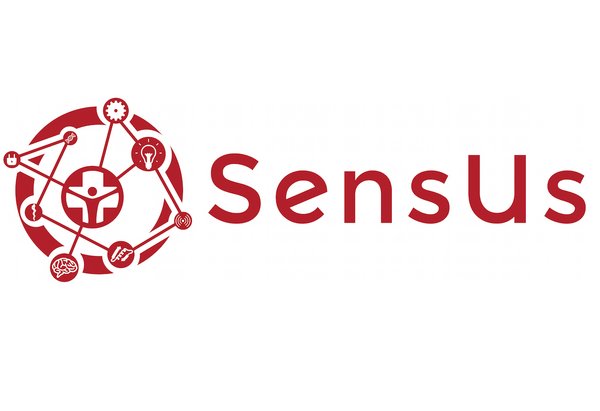Courses
The MBx group is part of the Department of Biomedical Engineering and the Department of Applied Physics and is a member of the Institute for Complex Molecular Systems.
Within Applied Physics, MBx is part of the research cluster Functional Materials.
Within Biomedical Engineering, MBx is part of the research cluster Molecular Bioengineering.
Please find the course information and details on Canvas and Osiris via mytue.tue.nl
BACHELOR COURSES
- 8NC00 Electromagnetism and Optics (prof.dr.ir. M.W.J. Prins, main lecturer)
- 3DBX0 Biological physics (dr. L.J. van IJzendoorn, main lecturer)
- 3EKX0 Forces in biomechanics (dr. L.J. van IJzendoorn, main lecturer; dr.ir. A.M. de Jong, assistant lecturer)
- 3FSX0 Subatomic physica (dr. L.J. van IJzendoorn, main lecturer)
- 3NB70 Building blocks and interactions (dr. L.J. van IJzendoorn, main lecturer; dr.ir. A.M. de Jong, assistant lecturer)
- 3VN60 Group theory in physica (dr. L.J. van IJzendoorn, main lecturer)
- 3A1X0 Experimental Physics 1 (dr.ir. A.M. de Jong, assistant lecturer)
- 3A2X0 Experimental Physics 2 (dr.ir. A.M. de Jong, assistant lecturer)
- 3AOX0 OGO Instrumental Physics (dr.ir. A.M. de Jong, assistant lecturer)
- 3B3X0 Experimental Physics 3 (dr.ir. A.M. de Jong, main lecturer)
- 3BOX0 Optics (dr.ir. A.M. de Jong, assistant lecturer)
- 3NB10 Advanced measure methods (dr.ir. A.M. de Jong, assistant lecturer)
- 3AEX0 Electromagnetism (dr. P. Zijlstra, instructor)
- 3NBB0 Toegepaste Natuurwetenschappen (dr. P. Zijlstra, assistant lecturer)
- 8QA06 OGO Biosensor voor de huid (prof.dr.ir. M.W.J. Prins, main lecturer)
- HA900/HA950 Honors Academy Track on Molecular Biosensing (prof.dr.ir. M.W.J. Prins, main lecturer)
MASTER COURSES
- 8NM10 / 3MN170 Molecular Biosensing (dr. L.J. van IJzendoorn, main lecturer; prof.dr.ir. M.W.J. Prins and prof.dr. M. Merkx, assistent lecturers)
- 3S400 Biophysical techniques (dr.ir. A.M. de Jong, main lecturer)
BSc and MSc Projects
For students who want to participate in our research program, we offer a broad range of projects to work in. We have bachelor and master projects available. For more information please contact one of the staff members.
Applied Physics students who want to do a master's (graduation) project in the MBx group have to take part in the specialist area Functional (nano) materials.
sensus, an INTERNATIONAL COMPETITION ON MOLECULAR BIOSENSORS
Everybody knows the power and pleasure of international contests such as the RoboCup, the World Solar Challenge, and iGEM. Teams of students from different universities design, build and demonstrate demo’s and strive for the best possible performance. Such a contest is a great way to stimulate students toward creative, multidisciplinary, function-oriented teamwork, and to accelerate the development of novel technologies in an international context.
The vision of SensUs is that real-time molecular sensing devices will change healthcare in the 21st century, for the best possible monitoring, coaching, and treatment of people. Healthcare is developing toward highly personalized solutions, attuned to the needs of patients, based on real time, precise and reliable data. Important enablers are miniaturized and easy to use sensing devices, which help to improve the monitoring and treatment of patients. This includes devices for near-patient testing (point-of-care) as well as sensors that are worn on or in the body (in-vivo sensors). For this to become reality, novel sensing principles, molecular materials, and device concepts need to be investigated and developed.
Prins: "My intention with SensUs is that it catalyses new ideas and forges cooperation between universities, companies and healthcare partners. SensUs is becoming an engine for multi-year technology development in the field of molecular health sensing: smaller, faster, more precise, more integrated, more specific, more sensitive, etc."
Each year, a societally impactful indicator of health is chosen as objective in collaboration with different stakeholders. The participating teams from all over the world consist of students from multiple scientific disciplines. Biosensing technologies are inherently multidisciplinary. To be successful, the teams need to creatively combine molecular technologies and device technologies.
Prins: "I am very proud of the student teams and of the students within the Honors Academy with whom I organize the competition. It is amazing to see how they perform and how much they learn in a short time span. Organizing the competition is a lot of work, but it is also rewarding and I foresee that SensUs will increasingly be a real motor for education, research and innovation in the field of molecular biosensing."
SensUs has been founded by prof. Menno Prins, professor in Biomedical Engineering and Applied Physics, and is organized for students, by students.
Learn more about SensUs and this year’s edition at www.SensUs.org
-
Prof.dr.ir. Prins, M.W.J.
Sam van Boulogne LLBRayan MahabierPeetersweg9164LC Oterleek -
dr. IJzendoorn, L.J. van
Tycho HermansDex AutarLijndreef9431GV Well -
Dr.ir. Jong, A.M. de
ds. Sterre van Laarhoven LLMAmelia Zowran von RanzowMulderlaan5126WR Neerkant -
Dr. Zijlstra, P.
Xavi van BentheimTwan Hermans Bde Kokbaan4797HE Loo Gld
